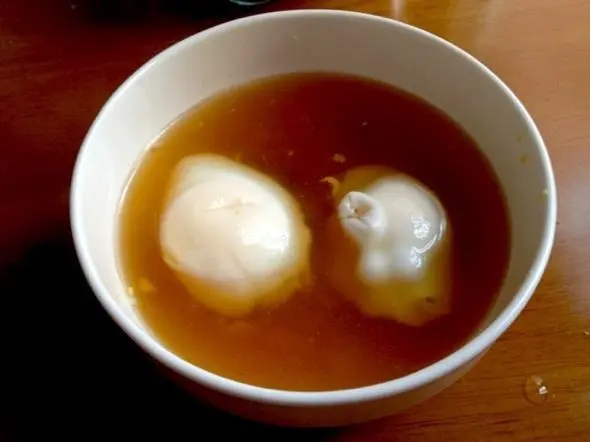I believe everyone is very familiar with it. It can be seen in almost every kitchen. Eggs are not only nutritious, but also have a variety of methods. They can not only provide nutrition for the human body, but also satisfy different taste buds of different people. What should not eat after eating eggs

1. What is the nutritional value of eggs?
Eggs have always been called the “ideal nutrient library”. Although different types of eggs have slightly different nutritional components, the most important nutrients are:
A. Protein
The protein contained in eggs belongs to high-quality protein, which is easily digested and absorbed by the human body, and the absorption rate can reach 99.7%. About 13 grams of protein per 100 grams of eggs, two eggs contain the same protein content as 150 grams of fish or lean meat, and eggs have the highest protein digestibility compared to milk, pork, beef, and rice.
B. Amino acid
Eggs are particularly rich in methionine, and cereals and beans lack this essential amino acid. Therefore, mixing eggs with cereals or beans can improve the bioavailability of the latter two at the same time.
C. Fat
Every 100 grams of eggs contains about 10 grams of lipids, most of which are concentrated in the egg yolk, mainly unsaturated fatty acids, and the fat is milky and easily absorbed by the human body.
D. Other nutrients

Eggs are also rich in trace elements, such as potassium, sodium, magnesium, phosphorus, etc., but calcium is relatively insufficient. Therefore, eating milk and eggs together can be nutritionally complementary, and eggs are also rich in vitamin A and B vitamins.
2. After eating eggs, try not to eat the following foods, are you eating right?
A. Soy Milk
Many people like to use eggs to match soy milk for breakfast. Both eggs and soy milk are rich in energy and can provide the body’s needs, but these two foods are not suitable for matching. Soymilk contains trypsin inhibitor, which binds to the sticky protein in egg white, which will hinder the decomposition of protein, resulting in the lack of nutrients and reducing the nutritional value of the two foods.
B. MSG
Monosodium glutamate is also a very common condiment in the family. Many people like to add it to help the seasoning when cooking food, but if it is scrambled eggs, do not add MSG. Eggs contain a lot of glutamic acid, which is the same as MSG. The combination of the two will not only mask the original umami taste of eggs, but also inhibit the activity of one of the proteases, reducing the nutritional value. Don’t ignore it!
C. Persimmon

I believe that many people have eaten persimmons, but if you just finished eating eggs, don’t eat this fruit again. These two foods are easy to react in the stomach and even induce poisoning. Generally speaking, it is easy to It will cause gastroenteritis and persimmon stones, the main symptoms are vomiting, abdominal pain, diarrhea, don’t be careless!
D. Tea
Nowadays, more and more people around us are beginning to pay attention to health preservation, and they also put some tea leaves when drinking water. Although tea has certain health benefits, do not drink tea immediately after eating eggs. Tea contains sulfuric acid. The sulfuric acid will combine with the protein in the egg and slowly turn into tannin protein. This substance easily affects the digestion and absorption capacity of the stomach and intestines, thus bringing certain hidden dangers to the health of the body. If you want to drink tea, try to drink it an hour after eating eggs.
E. Sugar

If you eat sugar immediately after eating eggs, it is not good for your health. People in some areas still like to eat poached eggs in sugar water. Although it is very delicious, it is not good for your health. Sugar and amino acids easily react together to produce a substance called fructosyl lysine, which is toxic and cannot be digested and absorbed by the human body, which can easily bring hidden dangers to health.
3. Who should not eat eggs

- Egg allergy: The protein in eggs has an antigenic effect, which can easily cause allergic reactions, such as eczema, abdominal pain, diarrhea and other symptoms.
- Fever: High fever causes the function of the digestive system to weaken, and the high protein content of eggs can easily cause indigestion symptoms.
- Cholecystitis and hypercholesterolemia: Due to the high cholesterol content in egg yolk, the increase in blood cholesterol content will lead to the occurrence of arteriosclerosis, and at the same time, it will increase the burden on the gallbladder and cause discomfort.
Read more tips about health on http://www.facefof.com
